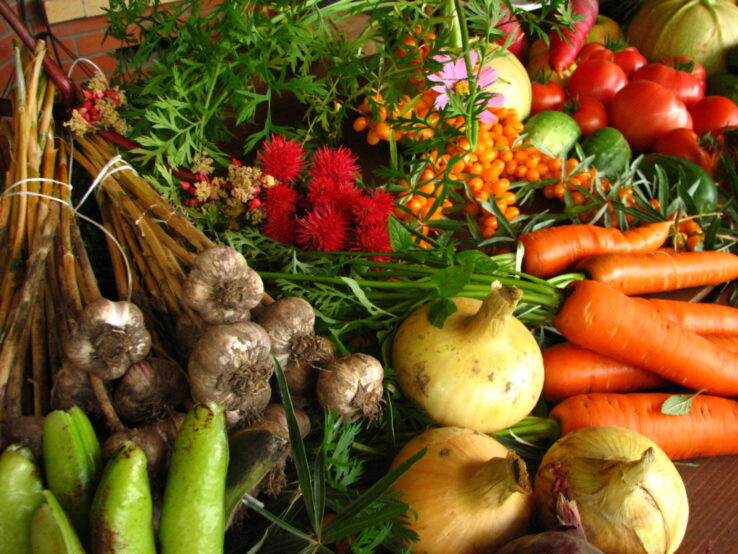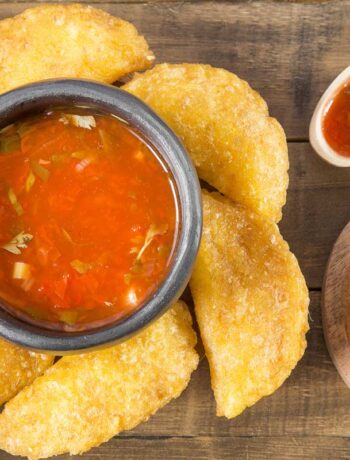Do you ever feel like the fast-paced modern lifestyle is just too much? Do you wish your daily life could be filled with more relaxation and pleasure, rather than stressful obligations? If so, then the slow food movement may be right for you.
Established in 1989 in Italy as an alternative to fast food culture, this philosophy places emphasis on reconnecting people with their local and global roots through the consumption of natural foods that are both healthy and delicious.
With its focus on community-building and flavor appreciation, it’s no wonder why the slow food movement has spread around the world — allowing them a chance to embrace slower living for a richer experience.
Read on to learn how participating in this movement can lead to greater satisfaction with one’s life overall!
What is the Slow Food Movement?

Source: laespanolaoliveoil.com
The slow food movement has been gaining momentum for decades, and for good reason; it is a positive, socio-environmental movement that focuses on supporting agricultural practices which nurture biodiversity, deliver healthier food with better taste and are sustainable long-term.
It encourages people to find ways to connect with the land while actively promoting locally sourced products. On top of this, people who follow the slow food movement decline large-scale industrialized forms of agriculture production in an effort to move away from processed foods to create more nutritious diets.
This not only helps protect endangered crop varieties but also promotes social work such as helping small family farmers access markets, where they can sell their produce at fair prices.
The Health Benefits of Eating Slow Food

Source: health.com
One of the most obvious benefits of eating slow food is that it’s better for your health. Slow food comes from local sources, eliminating the need to add preservatives or other additives to keep it fresh while it travels long distances. It’s the difference between pre-cooked chicken from a large supermarket chain, and taking the time to smoke a whole chicken that you sourced from your local farmers market. You get fresh ingredients that haven’t been processed or exposed to harsh chemicals which can often lead to health problems down the road.
Another benefit is that slower-paced meals tend to be more enjoyable as we take time to savor each bite and appreciate the flavors we taste rather than rushing through our meal as if it were just another task on our list. Research has even shown that slowing down while eating can help with weight loss because it helps us recognize when we are full instead of mindlessly overeating.
The Community Benefits of Joining the Slow Food Movement

Source: wmn.de
The slow food movement is an excellent way to help protect a valuable part of our global culture: traditional cuisine. Joining this movement not only supports the sustainability of the environment, but it also brings people together in their communities. It encourages local farmers and producers while simultaneously supporting restaurants that serve the seasonal and diverse bounty of fresh ingredients from the area.
Slow foods typically support local farmers who practice sustainable farming methods rather than large industrial farms that rely on pesticides and other chemicals that can harm the environment. By choosing slow food, you are helping support farms and businesses in your area which helps create jobs and boosts the local economy.
Ultimately, participating in the slow food movement can promote healthier living and serve as an important starting point for strengthening both local and global communities.
How the Slow Food Revolution Helps Your Digestion Process
The slow food revolution can be instrumental in improving your digestion process. Eating slowly and deliberately allows for full enjoyment of the tastes, aromas and textures of the food. It also allows your body to properly absorb essential nutrients, which can improve your digestive health.
Additionally, slowing down gives your brain the time to register when you’re starting to feel full. This helps prevent overeating that can ultimately lead to digestive issues such as indigestion or bloating. Taking your time with meals is not only an integral part of savoring the experience, but it could also help with maintaining a healthy digestive system.
How the Slow Food Revolution Helps Reduce Stress

Source: shbarcelona.com
It’s no secret that stress is an issue facing many people in today’s fast-paced world. As the slow food revolution has gained traction, many are discovering that slow food is a way to reduce stress and find more peace throughout their day.
Slow food encourages us to cook our meals with care and eat them slowly, enjoying each bite and focusing on the taste and texture of our food. Eating meals mindfully can help us de-stress by providing moments of pause throughout our day, while also helping us better appreciate the food we have been blessed with.
Additionally, since eating real, whole foods helps keep your body healthy and energetic, it can help keep your energy levels higher and stress at bay. With the slow food revolution helping bring awareness to these benefits, what better way is there to reduce stress in one’s life?
Tips for Incorporating a Slow Food Mindset Into Your Life

Source: womansday.com
If you want to try out the slow food movement but aren’t sure how to start, there are many great resources available online such as blogs, cookbooks, and forums dedicated to helping people learn more about this approach to healthy living. You can also join a local community group or find farmers markets near you where you can purchase fresh ingredients directly from the source.
Taking a step back from processed foods and artificial preservatives will not only help improve your physical health but will also help create a stronger community around you by supporting small business owners and sustainable farming practices. Choosing slow food may just be one of the best decisions you make.
After learning more about the slow food movement, it’s easy to see why it is gaining popularity. The movement celebrates all things food – from the growers and chefs, to the diners themselves. It emphasizes fresh, local ingredients and taking the time to enjoy a good meal with friends and family. If you are interested in slowing down and enjoying your food more, the slow food movement may be right for you.




